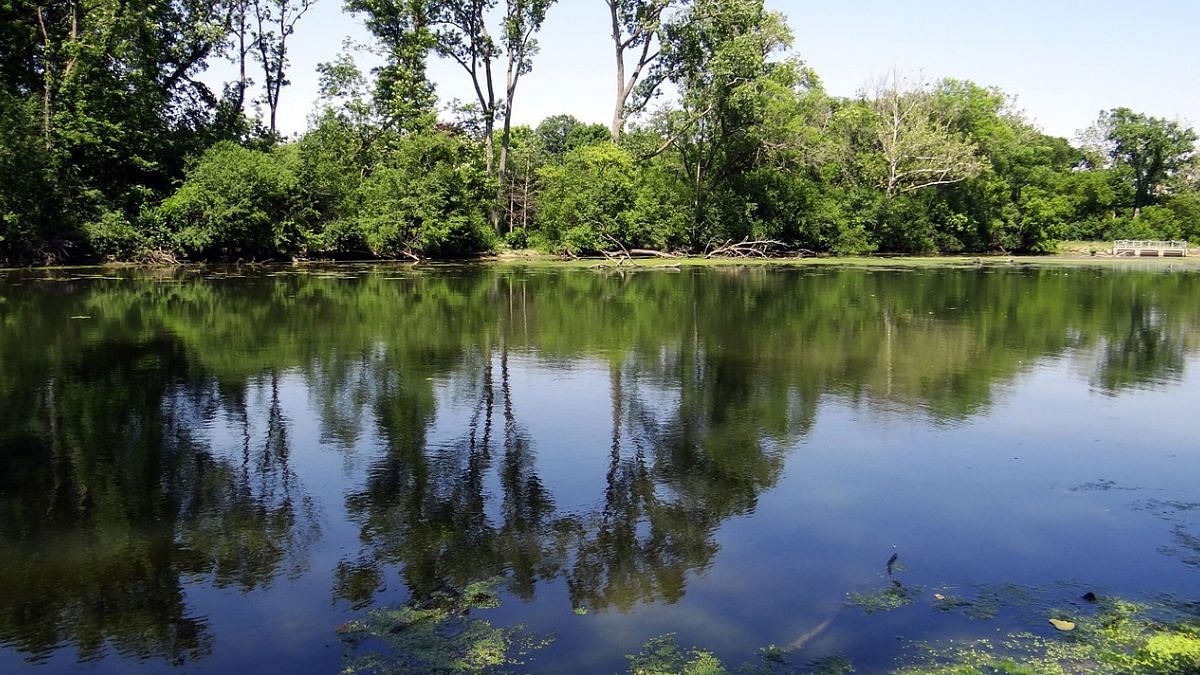Bengaluru: How freshwater, which sustains life, came to be on Earth has continued to be a source of mystery, with experts believing so far that it was the result of water-carrying asteroids and comets pummeling Earth more than four billion years ago.
Now, geologists from Khalifa University in Abu Dhabi, along with other Australian researchers, have determined that rock crystals from some of the world’s oldest rocks in Australia indicate that freshwater had already appeared on Earth around that time.
According to the findings, published in the journal Nature Geoscience earlier this week, freshwater appeared on Earth almost 600 million years before what the existing theories and data suggest. The findings date the presence of water on Earth to four billion years ago, a mere 600 million years after the planet formed.
“The emergence of continental crust, the presence of fresh water, and the start of the hydrological cycle probably facilitated the development of the environmental niches required for life fewer than 600 million years after Earth’s formation,” the paper read.
The analysis was performed on four billion-year-old zircon crystals from Western Australia’s Jack Hills, some of the oldest existing rock formations in the world.
Evaporation in rocks
Rocks on Earth contain minerals and salts, which can be studied for their concentrations in the lab. The researchers analysed isotopes of oxygen molecules to understand whether salty water might have evaporated from rocks to rain back down.
When water evaporates from the surface of the ocean or tops of rocks, it leaves behind salt, while simultaneously undergoing molecular makeup changes. The lighter isotope of oxygen called oxygen-16 evaporates quicker than oxygen-18.
This oxygen-16-rich water returns in the form of rain, and once again undergoes evaporation, where more oxygen-18 remains behind. Over a period of time, freshwater becomes concentrated in oxygen-16, while seawater mainly comprises the heavier oxygen-18.
Meanwhile, oxygen-16 water also percolates into rocks when it rains down and reacts chemically with rocks or magma deep underground. This releases oxygen-16 molecules in these structures, providing evidence of freshwater permeation.
Also Read: Scientists find way to boost supercapacitors’ energy storage. It could change how we charge devices
Two periods of rains
In the study, more than 1,300 pieces of zircon crystals were analysed for their isotopic oxygen rations across time. Most zircons were made up of oxygen-18, but rocks that were dated to two specific time periods, were more concentrated in oxygen-16.
These freshwater rocks were dated to around 3.4 billion years ago and to four billion years ago. The researchers concluded that the majority of water on Earth was salty, and four billion years ago, enough land had emerged from the seas, and also lava, to have a freshwater cycle above ground.
They speculated whether there were global oceans during the two periods of time. Their findings added confirmation to the later period of rain — 3.4 billion years ago — as previous studies had shown. This is because the concentrations of oxygen-16 observed in these crystals can be seen only if a significant amount of freshwater had been present on the planet.
Water is one of the most crucial elements for sustenance of life, and the oldest confirmed forms of life have been dated in fossils to 3.5 billion years ago.
(Edited by Mannat Chugh)
Also Read: Unique gene editing drug could treat genetic blindness, but how it compares to existing therapies

